AI virtual sales assistant technology is completely changing how sales teams actually work. Instead of spending hours on boring paperwork, AI sales assistant software handles the routine stuff so salespeople can focus on what they do best – selling. These sales assistant AI tools are pretty smart, automatically figuring out which leads are worth pursuing and when to reach out.
What is AI sales assistant software exactly? Think of it as having a super organized coworker who never takes breaks. AI sales assistants dig through customer data, predict who’s most likely to buy, and even suggest perfect timing for calls. The best AI sales assistant platforms work with whatever CRM system you’re already using.
Teams using AI assisted sales and marketing see huge improvements fast. Virtual sales assistant AI takes care of data entry, research, and follow-up emails that used to eat up entire afternoons. Some sales AI assistant tools even sit in on calls, taking notes and catching important details you might miss.
Lots of companies test free AI sales assistant options first before buying anything expensive. AI powered sales assistant software keeps getting better at things like joining sales calls and writing proposals automatically. Bottom line? Sales teams close way more deals while actually working less. This stuff isn’t coming someday – it’s already here and working.
Understanding AI Sales Assistant Software
AI sales assistant software is a class of digital tools designed to streamline and enhance the sales process through automation, data analysis, and intelligent interaction. Often referred to as AI virtual sales assistants or sales assist AI, these platforms act as real-time support systems for sales teams, managing tasks that would otherwise consume hours of manual effort.
At its core, an AI assistant for sales automates lead qualification, follow-ups, meeting scheduling, CRM updates, and call summaries. It helps prioritize prospects based on engagement signals and historical behavior, improving conversion rates and reducing sales cycles.
AI-assisted sales and marketing platforms analyze large data sets to provide actionable insights, improve targeting, and optimize communication. This results in higher productivity, more accurate forecasting, and improved customer engagement.
By reducing administrative burdens and enhancing decision-making, AI-powered sales assistants are becoming essential tools for companies seeking competitive advantage in dynamic sales environments.
The Evolution of AI in Sales
The integration of AI into sales began with basic automation—reminders, call logging, and data entry. But today’s AI sales assistant software has matured into a proactive tool that shapes strategy and enhances human performance. No longer just a digital notetaker, the modern AI virtual sales assistant analyzes patterns, predicts outcomes, and suggests next best actions.
This shift has redefined sales dynamics. AI assistance in sales now enables deeper customer insights, real-time personalization, and better timing—qualities that elevate both productivity and buyer experience. The sales process has become more data-informed and less reactive.
From managing pipelines to guiding conversations, AI-powered sales assistants now play a consultative role. They don’t just support—they enhance decision-making and execution. As AI technology advances, its role continues to evolve from helpful tool to indispensable partner in the pursuit of sales excellence.

What is an AI Sales Assistant?
An AI sales assistant is smart software that makes sales teams more effective. Such an assistant never sleeps, never forgets anything, and gets smarter every day. Instead of replacing salespeople, it handles all the tedious work automatically.
It actually does lots of useful stuff. Lead qualification happens without you even thinking about it. Your CRM updates itself magically. Meetings get scheduled through back-and-forth emails you never see. You receive a perfect summary of every phone call. You never forget to have follow-ups.
This frees up massive amounts of time for what actually matters – building relationships and closing deals.
But here’s where it gets really interesting. AI-assisted sales platforms don’t just handle busy work. They study customer behavior patterns and past conversations to figure out which prospects are most likely to buy. Then they suggest exactly what message to send and when to send it. Some even predict deal outcomes with scary accuracy.
Traditional sales tools just sit there waiting for you to use them. AI-powered assistants work constantly in the background. During live calls, they pop up helpful suggestions. They recommend perfect content to share. Warning flags appear when deals start going bad.
The magic happens through automation, accuracy, and personalization working together. Good AI assistants don’t just cut down on paperwork. They make entire teams perform at higher levels. Since they learn continuously and scale infinitely, they’re becoming absolutely essential for competitive sales organizations.
Conversation Intelligence vs. AI Sales Assistants
These two types of AI tools sound similar but do completely different jobs for sales teams. Let’s break down what each one actually does.
Conversation intelligence focuses entirely on sales calls. It records your conversations, writes transcripts automatically, and analyzes what happened. The AI picks up on customer emotions, tracks which questions got asked, notes objections people raised, and flags when competitors get mentioned. Pretty useful stuff for understanding what’s working and what isn’t.
The whole point is making your calls better. Sales reps get detailed feedback without spending time writing notes during conversations. Managers can coach more effectively because they see exactly what happened on calls. Everyone improves their communication skills based on real data instead of guessing.
AI sales assistants tackle way more than just phone calls. These tools handle lead scoring, update your CRM automatically, set up tasks, monitor your entire pipeline, and suggest content to share. Think of a virtual sales assistant AI as your all-purpose digital helper. It sends reminders, analyzes deal health, schedules follow-ups, and streamlines pretty much everything.
Here’s the key difference: conversation intelligence zeroes in on spoken interactions during calls. AI sales assistants work across your entire sales process from initial contact through closing deals.
Some platforms combine both features, but they’re not the same thing. Conversation intelligence makes your calls better. AI sales assistants make your whole sales operation run smoother. Understanding this difference helps you pick the right tools for what you actually need to improve.
How an AI Sales Assistant Can Help Your Team
AI sales assistant software actually makes a difference for sales teams. Here’s what these tools do in practice.
Creates More Effective Sales Materials
Instead of using the same boring pitch deck for everyone, AI builds materials that match what each customer cares about. If you’re selling to a healthcare company, the proposal talks about HIPAA compliance. Selling to a startup? It mentions scalability and cost savings. The content feels relevant because it is.
Speeds Up Sales Team Learning
New hires learn faster when AI identifies what they need to work on. Maybe John struggles with objection handling while Sarah needs help with discovery questions. The system gives them targeted practice during actual sales calls. No sitting in conference rooms for hours.
Automates Repetitive Tasks and Content Creation
Remember spending 20 minutes updating your CRM after every call? That’s over. The system listens to conversations and fills in the details automatically. Need a follow-up email? It writes one based on what was discussed. Your time goes to selling instead of data entry.
Improves Deal Rates
AI notices patterns in successful deals. It knows that prospects who ask about integrations usually buy within 30 days. Or that pricing objections mean you need to demonstrate ROI better. These insights help you adjust your approach for each situation.
Data Entry and CRM Upkeep
Your database stays clean without effort. Contact information gets updated when prospects change jobs. Meeting notes appear where they belong. Six months later, you can still find details about that important conversation instead of trying to remember what was discussed.
Lead Scoring and Routing
Some leads are ready to buy next week. Others need six months of nurturing. AI figures out which is which and sends hot prospects to your closers immediately. Everyone gets the right attention at the right time.
Next Best Action Recommendations
Should you call that prospect who went quiet or send them a case study first? AI looks at similar situations and suggests what usually works. Less guessing, better results.
Sales Pipeline Management
Deals stall for predictable reasons. AI spots the warning signs early – maybe the champion stopped responding or budget approval is taking too long. You can fix problems before they kill the opportunity.
Automated Customer Engagement
Prospects get helpful follow-ups even when you’re swamped with other calls. Someone asks a question on your website? AI answers instantly instead of making them wait until tomorrow. Engagement stays consistent.
Analyzing Customer Sentiment
Sometimes “sounds good” really means “I’m not interested but trying to be polite.” AI picks up on tone and language patterns to tell you how people actually feel about your proposal.
Meeting Preparation
Before each call, you get a summary of previous conversations, key pain points, and suggested questions. You look professional instead of asking “remind me what you do again?”
Precise Sales Forecasting
Instead of managers asking “what do you think?” about deals, AI analyzes actual data. It knows that prospects who schedule demos close 40% of the time. Forecasts become realistic instead of wishful thinking.
Building Bespoke Collateral
Marketing takes weeks to create industry-specific materials. AI builds them in minutes. Need a case study about manufacturing? Done. One-pager for retail? Ready. Everything matches the prospect’s world.
Email Management
Writing personalized emails to 100 prospects takes hours. AI handles the personalization while keeping your voice. Open rates improve because messages feel relevant to each recipient.
Providing Insights to Improve Your Sales Strategy
Maybe your team closes more deals on Thursdays or certain objections predict lost opportunities. AI reveals these patterns so you can adjust tactics. Strategy improves based on what actually happens instead of what you think happens.
Onboarding and Training Agents
New reps usually take months to become productive. AI shortens this by identifying exactly what each person needs to learn and when they’re ready for the next step. People succeed faster and stick around longer.

Benefits of Using an AI Sales Assistant
AI sales assistant software actually changes how sales teams work day-to-day. It makes everyone better at their jobs. Here’s what really happens when you start using these tools.
Productivity Gains
Sales reps hate updating CRMs after every call. They hate writing the same follow-up emails over and over. AI takes care of this stuff so they can do what they’re actually good at – talking to customers and closing deals. Suddenly everyone has time for important work.
Increased Efficiency of Sales Teams
Things just move faster when AI handles the boring tasks. A lead comes in? AI responds immediately instead of waiting until tomorrow. Pipeline updates? They happen automatically. Reps make better decisions because they have good information right when they need it.
Personalized Interactions
AI actually remembers what each prospect cares about. John from accounting worries about costs. Sarah from IT needs integration details. Every conversation feels like you’ve been paying attention. Customers notice when you get their situation instead of giving generic pitches.
Cost Reduction
You won’t need three extra people to handle twice as many leads. AI does work that used to require hiring more staff. Same budget, better results. Your boss will love the improved ROI numbers at the end of the quarter.
Consistency at Scale
Every lead gets treated well, even when you’re swamped. Nobody gets forgotten because someone was having a busy week. Your best practices get applied to everyone automatically. Quality stays high whether you’re handling 50 leads or 500.
Automation of Routine Tasks
Your CRM updates itself after phone calls. Meetings get scheduled without endless email chains. Call notes appear without typing anything. Follow-up reminders pop up at exactly the right time. You sell instead of doing administrative busy work.
Improved Sales Productivity
AI tells you which prospects are most likely to buy this month. It suggests what to say based on similar deals that closed. You stop wasting time on people who aren’t ready. More energy goes to real opportunities. Your numbers improve without working harder.
Enhanced Sales Intelligence
AI catches patterns you’d never notice on your own. Maybe customers who ask about security features buy 60% faster. Or pricing objections in week three usually mean the deal is dead. These insights help you adjust your approach and win more often.
Personalized Sales Support
The system learns your style over time. If you’re better at phone calls than emails, it suggests more calling. If case studies work for your prospects, it recommends the right ones. Everyone gets help that matches how they actually work.
Scalability
Handle 100 prospects or 1,000 – AI doesn’t get tired or overwhelmed. The system manages everything simultaneously without dropping quality. Your sales operation can grow without hiring a bunch of new people or sacrificing service.
Automated Task Management
Never forget to follow up with that hot prospect again. Never scramble to prepare for meetings five minutes beforehand. AI keeps track of everything and reminds you when stuff needs attention. Your organization improves without extra effort.
Enhanced Pipeline Management
See which deals are actually moving forward versus just sitting there. AI flags opportunities that are going nowhere so you can fix them or move on. Hot prospects get highlighted so you can prioritize properly. Pipeline meetings become useful instead of guesswork sessions.
Improved Forecasting
Your quarterly predictions become realistic instead of wishful thinking. AI looks at actual buyer behavior and deal patterns to predict what’s coming. Leadership can plan properly. You avoid those awkward conversations about missing targets by 40%.
Seamless Integration
New AI tools work with whatever CRM you’re already using. No massive system overhauls or months of training. The technology makes your existing setup better instead of forcing you to start over. Implementation actually happens instead of getting stuck in IT hell.
Personalized Customer Interactions
Every email mentions something relevant to that specific customer. Call scripts match their industry and concerns. Product recommendations make sense for their situation. Customers feel understood instead of pitched to. Trust builds faster and deals closer more naturally.

Key Features of AI Sales Assistant Software
The best AI sales assistant software combines intelligence, speed, and usability to support every phase of the sales process. From prospecting to closing, it helps sales teams work more effectively by automating tasks, analyzing data, and enabling smarter decisions. Below are the essential features to look for when choosing an AI-powered sales assistant.
Integration Capabilities
A top priority for any AI sales assistant is seamless integration with your existing tech stack. Whether it’s your CRM, email platform, or sales enablement tools, the assistant should sync effortlessly to eliminate manual data transfers. Strong integration ensures that your team works within a unified environment, saving time and reducing data inconsistencies.
User-Friendly Interface
Ease of use is critical to adoption. A clean, intuitive interface minimizes the learning curve and allows your team to get value from day one. When reps can navigate the software without confusion, they’re more likely to use it consistently—unlocking its full potential.
Customizable Workflows and Dashboards
No two sales processes are the same. Customizable features let you tailor the assistant’s behavior, reports, and dashboard views to match your team’s unique needs. This flexibility ensures the software adapts to your business—not the other way around.
Real-Time Analytics and Insights
AI sales assistants should deliver real-time performance metrics, pipeline analytics, and actionable insights. These allow reps and managers to make quick, informed decisions—adjusting strategy on the fly and responding to new opportunities with speed and precision.
Multi-Channel or Omnichannel Communication
Today’s sales process spans many platforms. Whether communicating through email, chat, video, or social media, your AI assistant should support outreach across all relevant channels. This ensures consistent, timely engagement no matter where prospects are most active.
CRM Integration
Tight CRM integration is essential. The AI assistant should not only update contact records but also pull context from the CRM to personalize outreach, track activity, and recommend next steps. This real-time sync improves data quality and sales performance.
Accurate Lead Qualification and Prioritization
Using behavioral and demographic data, AI can score leads based on their likelihood to convert. It identifies high-priority prospects and routes them to the right rep, improving conversion rates and shortening the sales cycle.
Automated Customer Engagement
From follow-up emails to reminders and personalized messages, the assistant should manage engagement sequences autonomously. This ensures that no prospect is forgotten and every lead stays nurtured throughout the funnel.
Customer Sentiment Analysis
Advanced AI tools can evaluate tone, word choice, and interaction patterns to detect sentiment. This helps reps identify satisfied leads, frustrated prospects, or at-risk deals—enabling faster, more effective responses.
Improved Sales Forecasting
With access to historical data and live pipeline activity, AI delivers precise forecasting models. These predictions help managers allocate resources effectively and set realistic targets based on real-world trends.
Content Creation Support
Whether it’s drafting emails, building sales scripts, or generating personalized assets, AI can help reps create high-quality content quickly. This eliminates guesswork and ensures consistent messaging across the team.
Email Management
AI sales assistants can write, schedule, and optimize sales emails. They also track opens, clicks, and replies, providing insights that improve subject lines, timing, and messaging strategies over time.
Task Automation
Reps waste countless hours on manual work. AI automates administrative tasks like note-taking, follow-ups, call logging, and scheduling—boosting efficiency and reducing the risk of missed steps.
Real-Time Sales Insights
Finally, continuous access to live data empowers sales leaders to monitor performance, identify bottlenecks, and adjust strategies as needed. Real-time insights drive smarter coaching, faster decisions, and better results.
Ethical Considerations Around AI Sales Assistants
As AI sales assistants become more integrated into sales operations, it’s essential to address the ethical concerns that accompany their adoption. These tools must be deployed with care to ensure responsible use and long-term trust.
Data Privacy: AI sales assistants process vast amounts of customer data, often including personal or sensitive information. Ensuring compliance with data protection laws and implementing strong security measures is critical to prevent misuse or breaches.
Transparency: Many AI systems operate as “black boxes,” making decisions without clearly showing how outcomes were reached. Organizations must prioritize transparency by explaining how AI recommendations are generated, especially when those decisions affect client interactions.
Bias and Fairness: AI models can unintentionally reflect biases present in the data they’re trained on. If left unchecked, this can lead to unfair lead scoring or targeting decisions. Regular audits are necessary to identify and mitigate bias in sales processes.
Job Loss: Automation raises concerns about workforce reduction. While AI enhances efficiency, companies should aim to retrain and reposition staff to focus on high-value activities rather than simply replace them. Ethical deployment should support both business growth and workforce development.
What Makes the Best AI Assistant Software?
The best AI sales assistant software goes beyond simple automation. It combines advanced AI capabilities with usability, scalability, and ethical design to support modern sales teams effectively.
Core AI Functionality: Leading solutions use machine learning and natural language processing (NLP) to analyze data, understand intent, and generate intelligent responses. Unlike basic automation tools, they adapt and learn from interactions to continuously improve performance.
Scalability: The software should grow with your business. As your sales volume increases or your processes evolve, the AI assistant must remain responsive, efficient, and relevant without requiring major overhauls.
Multichannel Support: Top tools support communication across email, chat, CRM, and social media—ensuring consistent and personalized experiences regardless of platform. This flexibility helps maintain strong customer relationships at every touchpoint.
Seamless Integration: Effective AI assistants integrate easily with your CRM and other sales tools. This creates a unified system where data flows freely,
Top AI Sales Assistant Software Tools
ZoomInfo Copilot
ZoomInfo Copilot gives sales professionals AI-guided recommendations powered by real-time intent signals and one of the most robust B2B data infrastructures available. It provides sellers with tailored messaging suggestions, pre-meeting intelligence, and alerts based on buyer behavior. Copilot’s Account AI consolidates key account insights from CRM and external data, enabling focused, timely engagement.
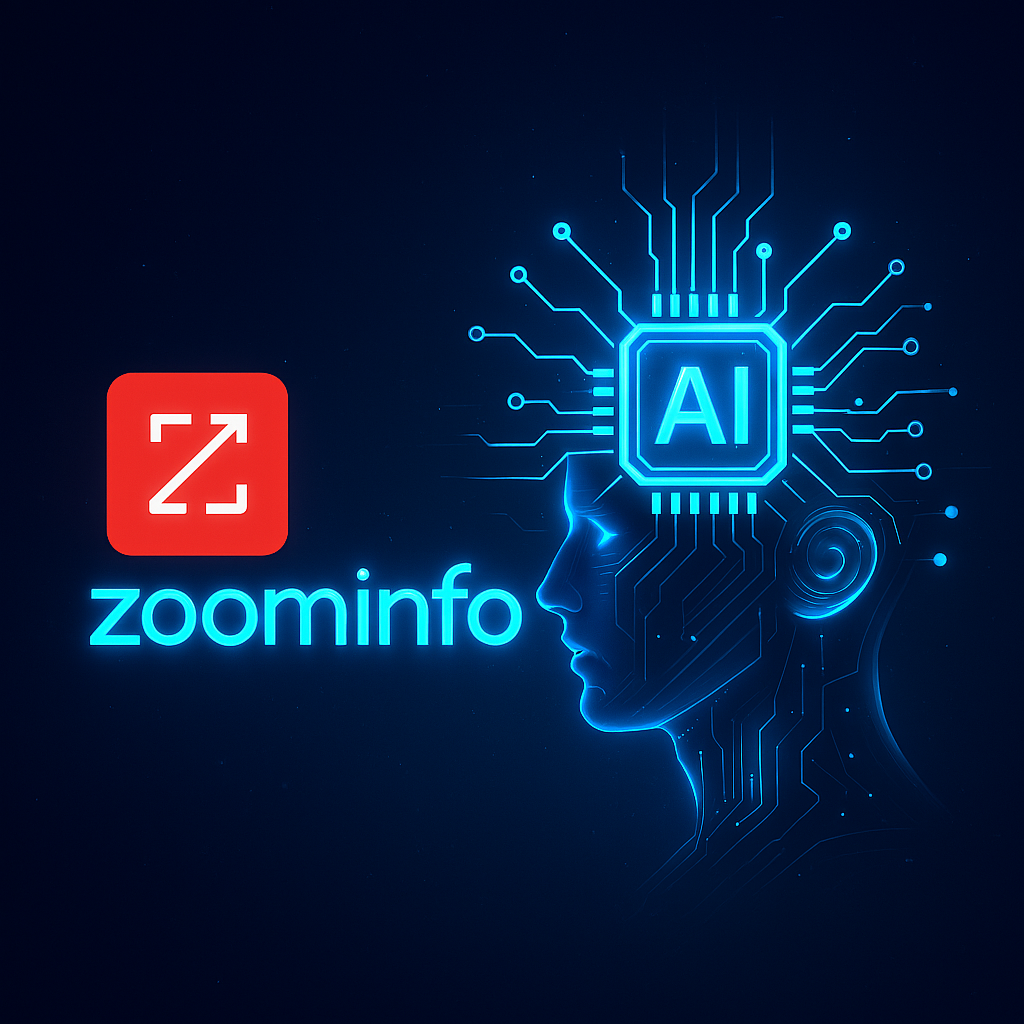
Salesforce Einstein
Salesforce Einstein brings powerful AI functionality directly into the Salesforce CRM. It offers predictive lead scoring, smart opportunity insights, and automated follow-ups based on prospect behavior. Einstein also supports forecasting, trend analysis, and natural language processing, all embedded into the Salesforce ecosystem for a fully integrated AI experience.
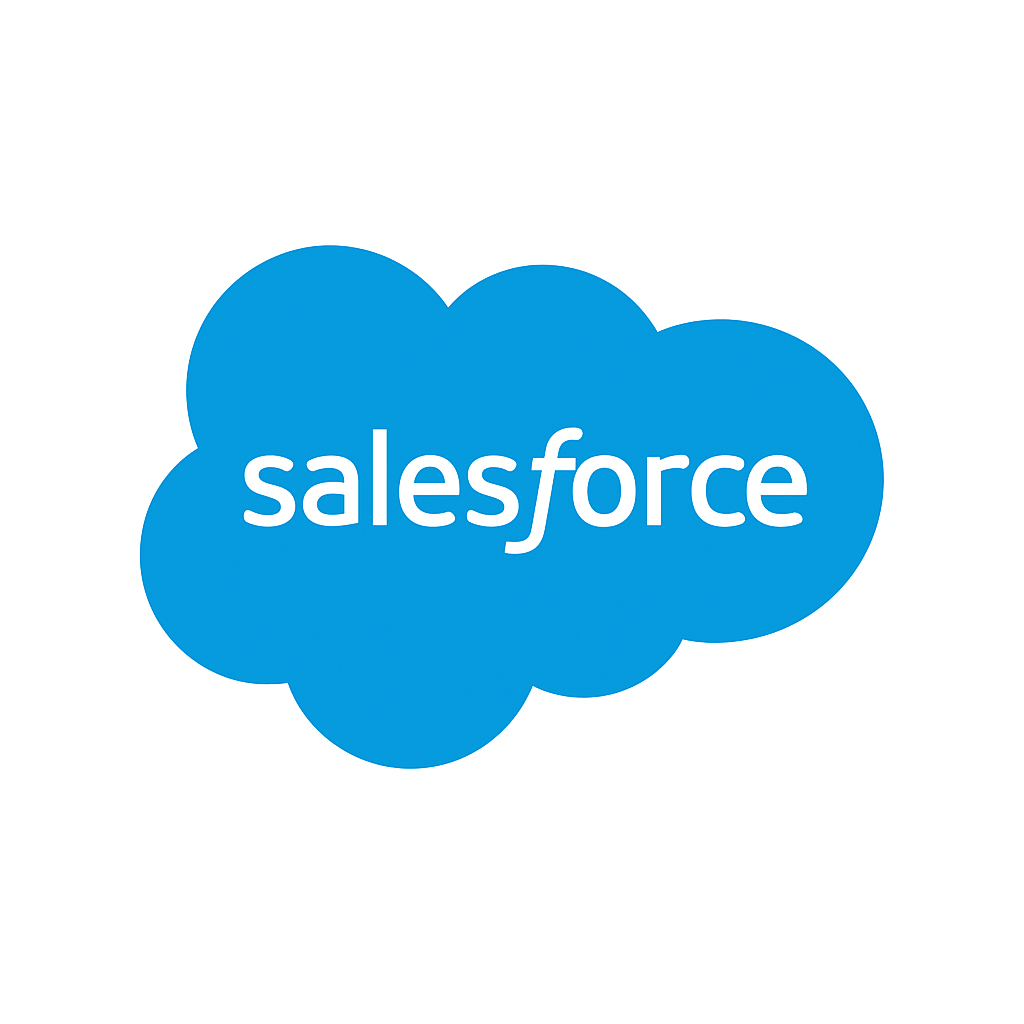
Pipedrive
Pipedrive enhances sales workflows through its AI-powered Smart Docs and Smart Contact Data features. These tools automate document generation and enrich contact profiles, helping sales teams maintain up-to-date, personalized pipelines. AI suggestions guide reps toward the next logical steps in the sales process, making day-to-day management more intuitive.
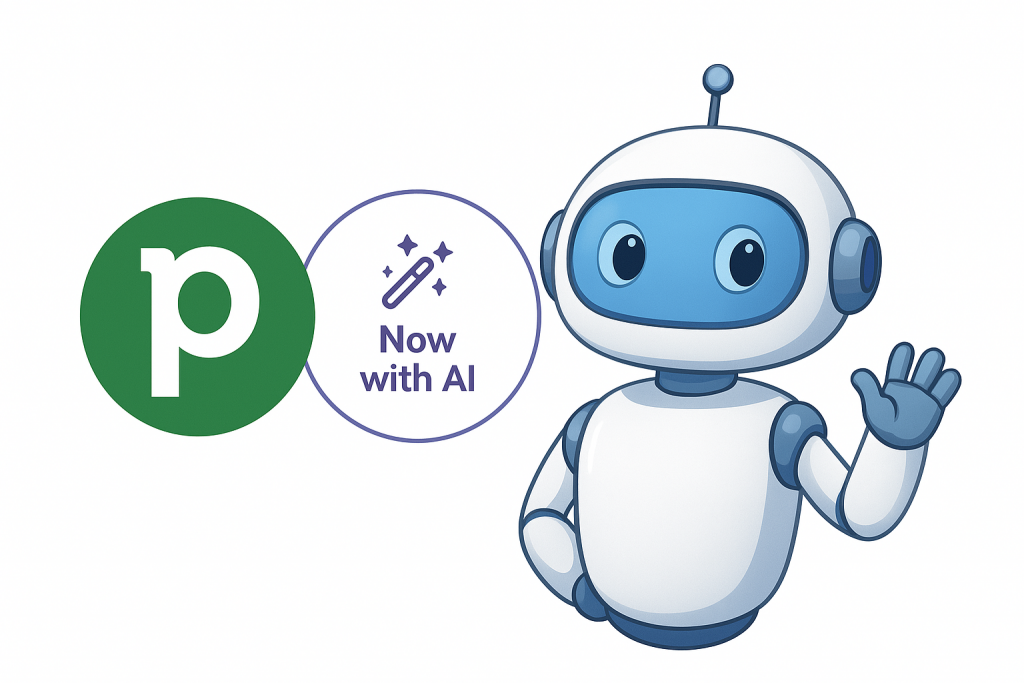
HubSpot Breeze
Breeze is HubSpot’s AI layer for sales productivity. With AI agents focused on prospecting, content creation, and customer insights, Breeze helps teams move faster through the funnel. Its Copilot automates repetitive tasks while delivering real-time buyer data and personalized messaging strategies. Everything functions seamlessly within the HubSpot CRM platform.
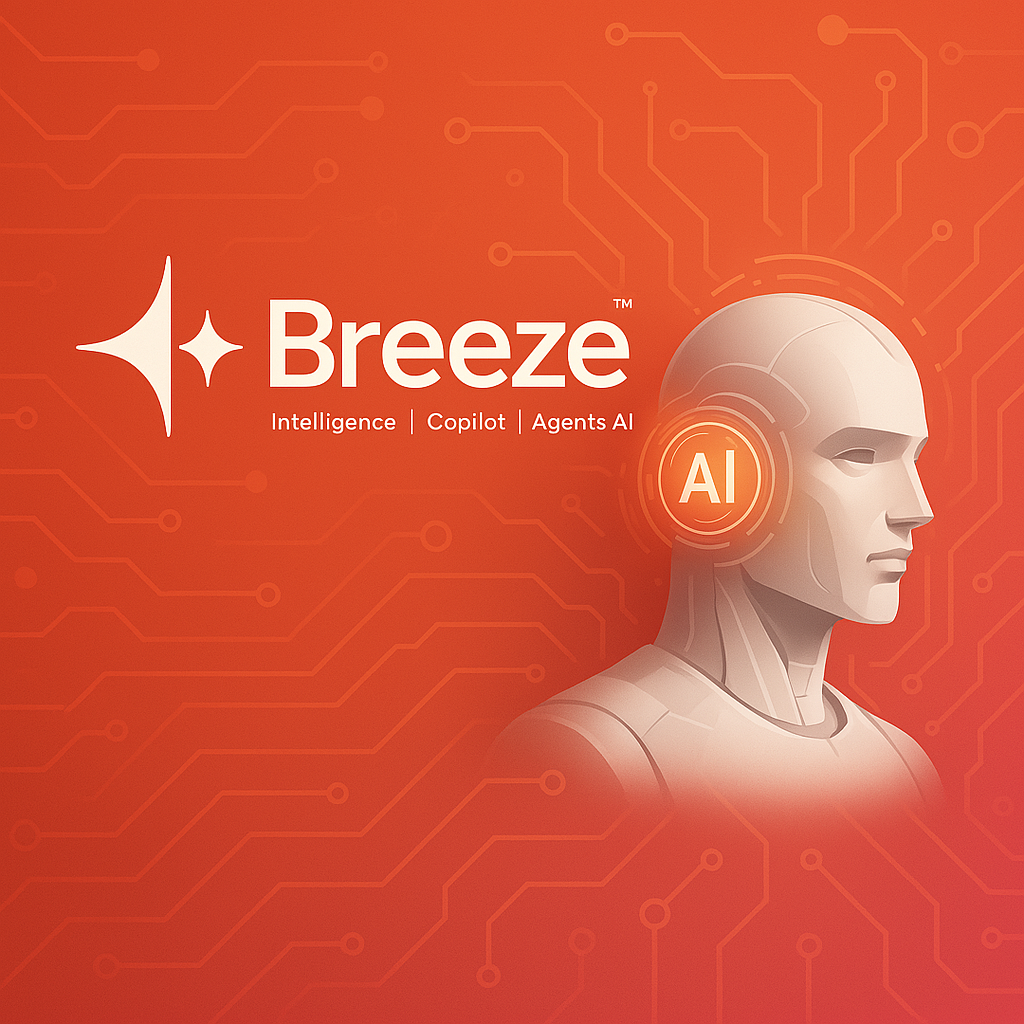
Intercom
Intercom uses conversational AI to support sales and pre-sales engagement. Its intelligent chatbots and workflows qualify leads, book meetings, and hand off conversations to human reps when needed. The system uses behavior-based triggers to initiate chat, ensuring the sales team connects with leads at optimal moments.
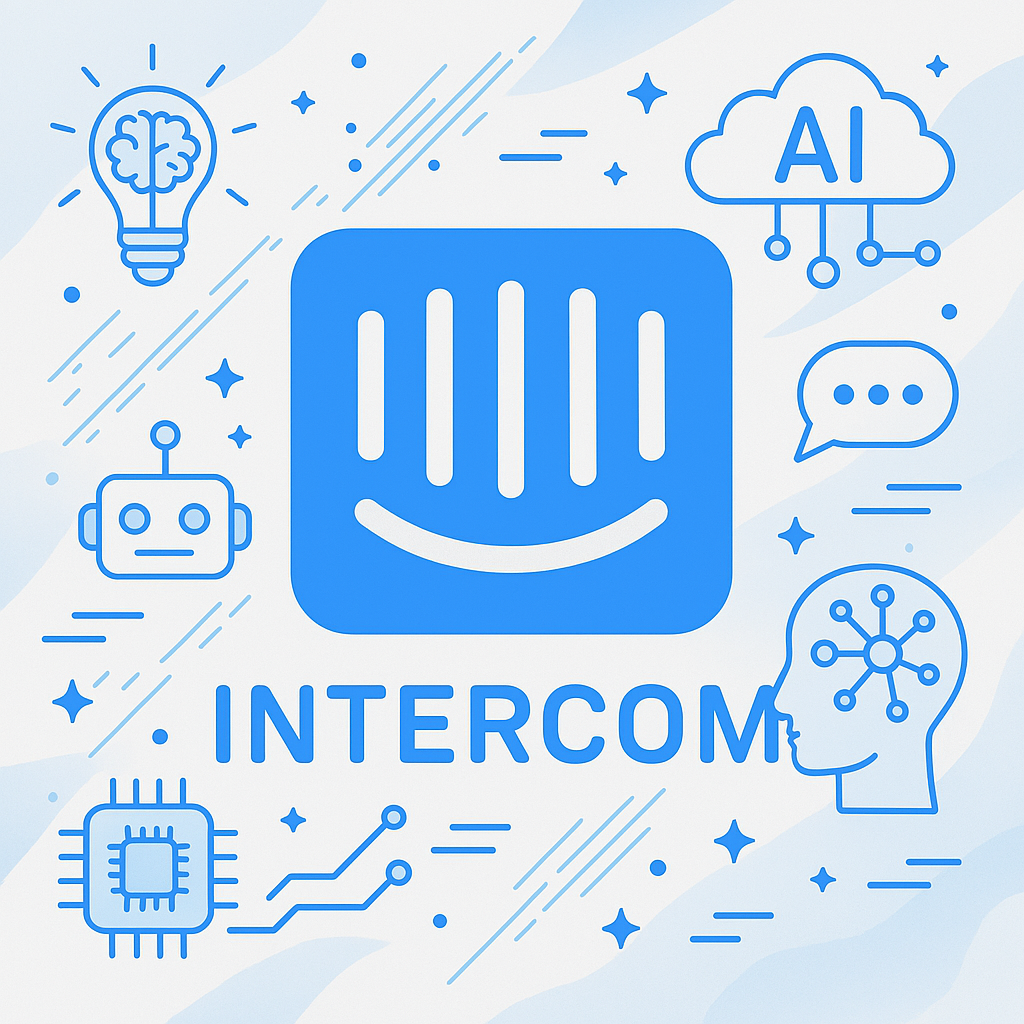
Zoho
Zoho’s AI assistant, Zia, is built into Zoho CRM and helps with lead prediction, task suggestions, and sales anomaly detection. Zia can analyze trends, recommend the best times to contact leads, and automatically populate CRM fields. For small and medium-sized businesses, it offers a well-rounded, cost-effective AI layer.
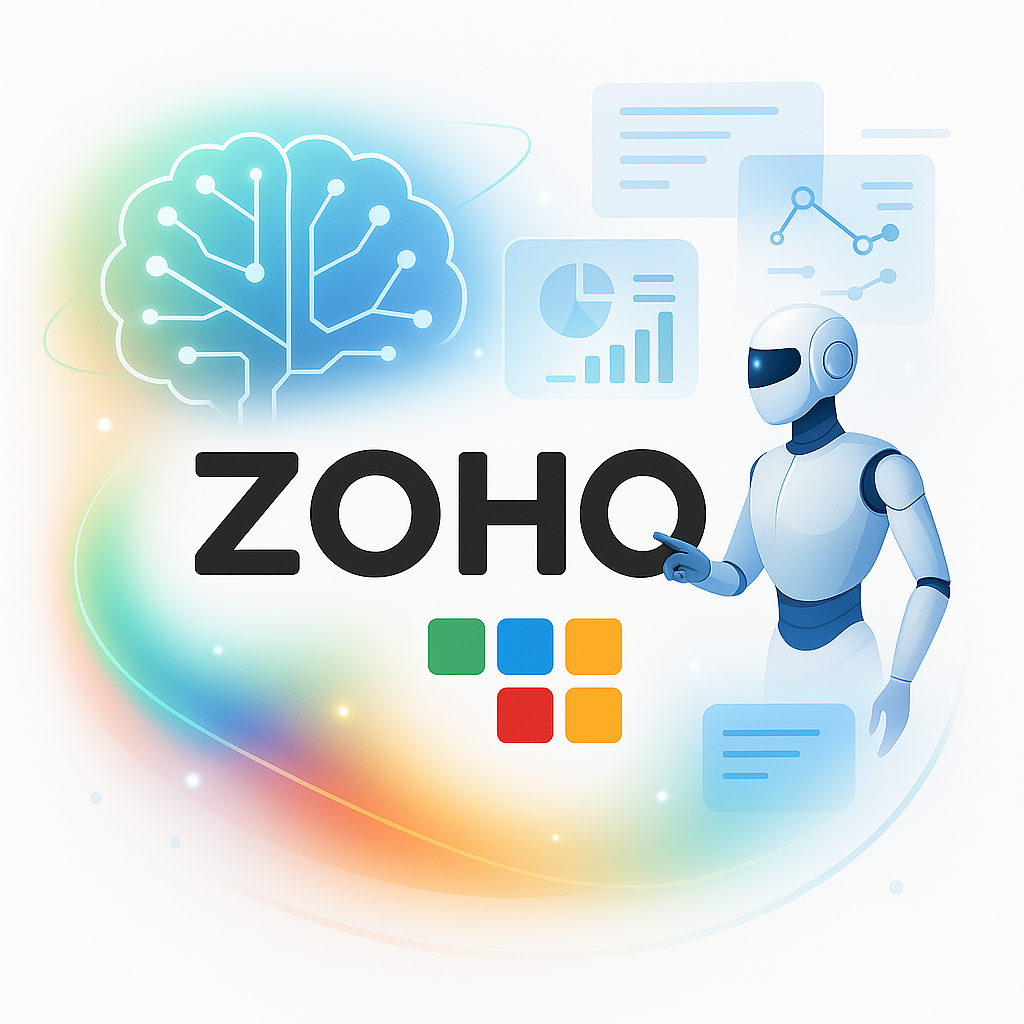
Zendesk
While Zendesk is known for customer service, its AI-driven tools support sales as well—particularly in managing pre-sale interactions. AI features include smart routing, sentiment analysis, and chatbot automation. These tools help prioritize and respond to inbound inquiries efficiently, improving the customer experience before handoff to a sales rep.
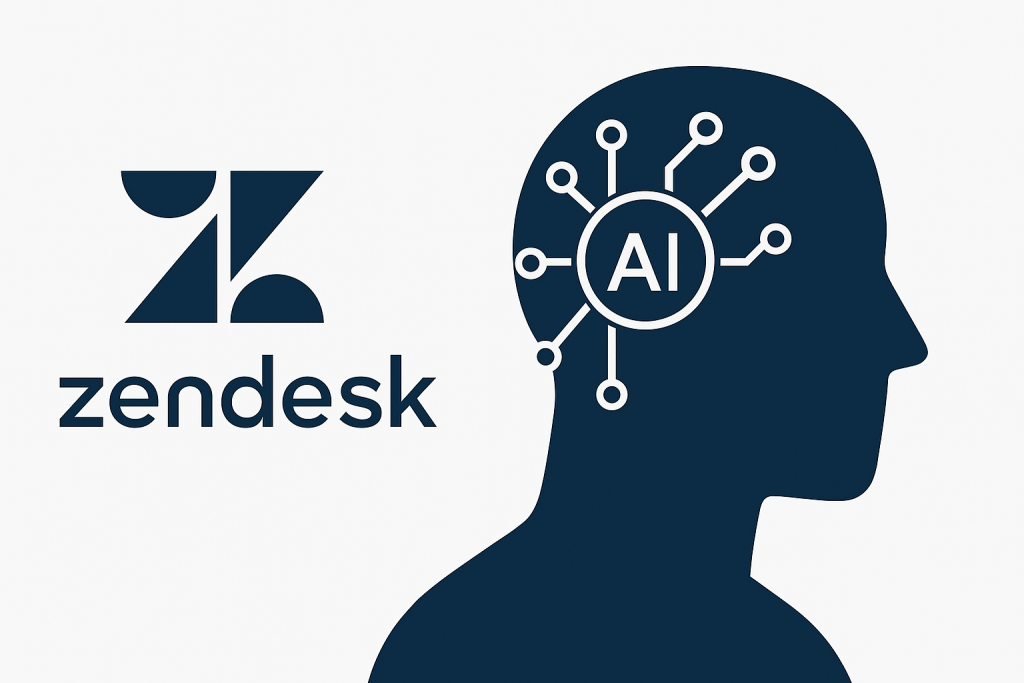
Instantly
Instantly is a cold outreach automation platform designed for scale. With unlimited email sending accounts and AI-enabled warm-up features, it simplifies mass prospecting. Instantly allows users to manage outreach campaigns, build lead lists, and A/B test messages—all in a centralized, user-friendly interface.
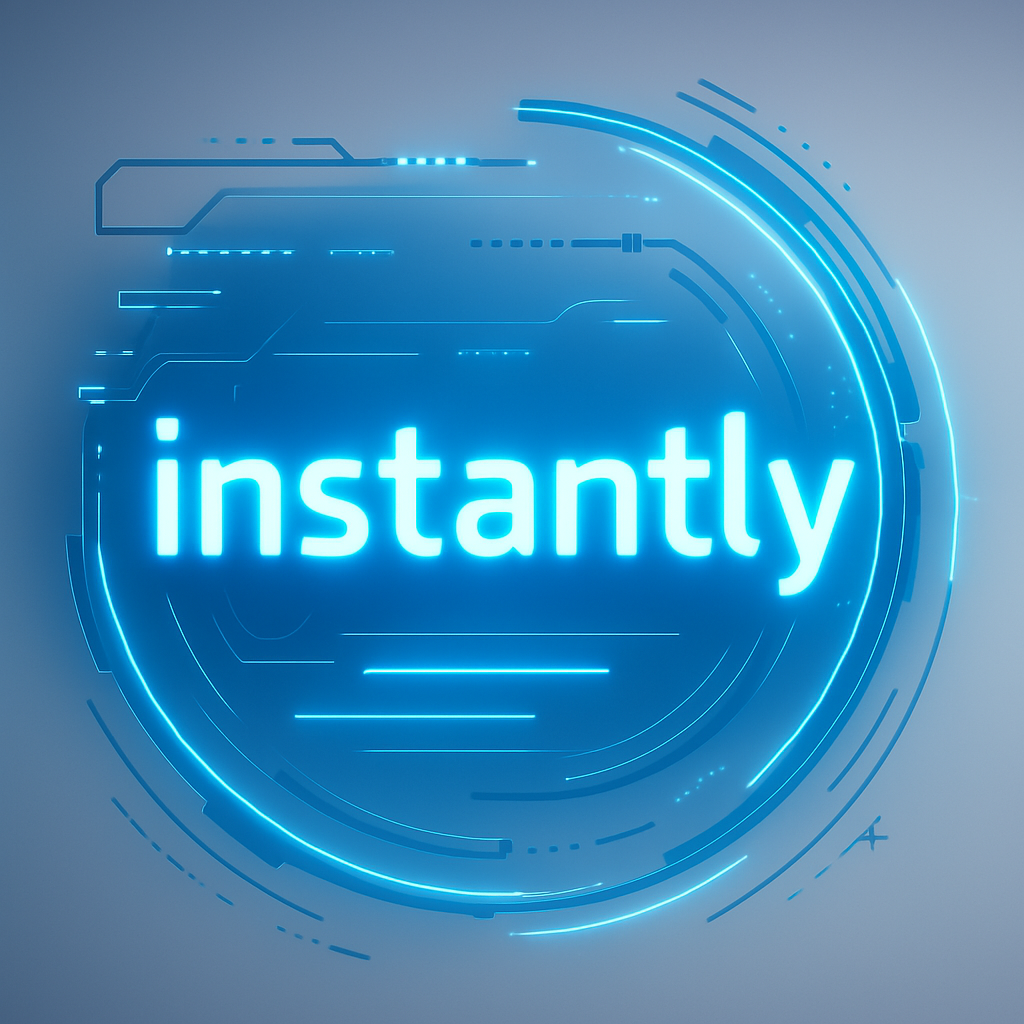
Fathom
Fathom is a meeting productivity tool that automatically records, transcribes, and summarizes video calls. Designed for Zoom, Google Meet, and Teams, it eliminates manual note-taking. Post-call summaries and highlights are synced to CRMs, streamlining follow-up and improving pipeline accuracy without extra admin work.
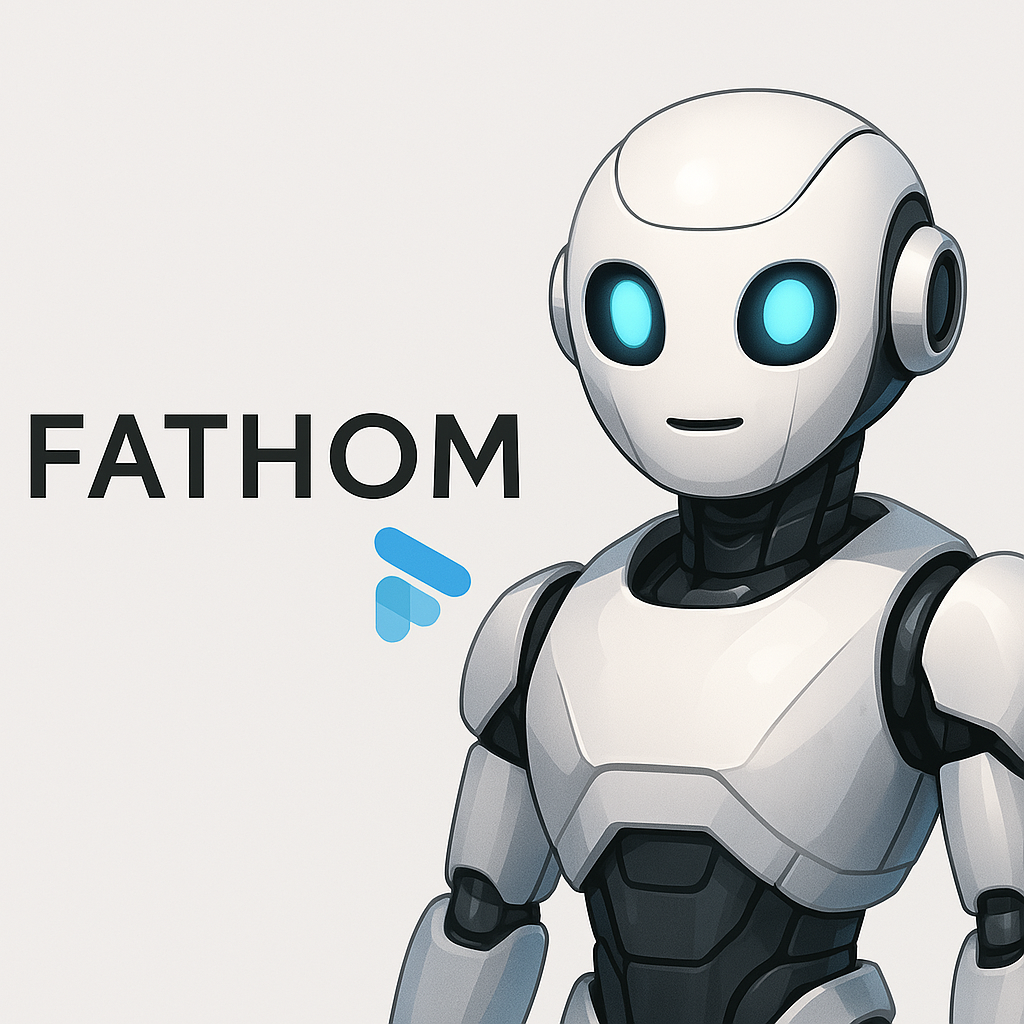
Clari Copilot
Clari Copilot, formerly Wingman, is a real-time conversation intelligence tool. It provides live battlecards, objection-handling cues, and alerts for risk factors during calls. Post-meeting, it uses generative AI (RevGPT) to summarize discussions, suggest next steps, and integrate insights into the broader Clari Revenue Platform.
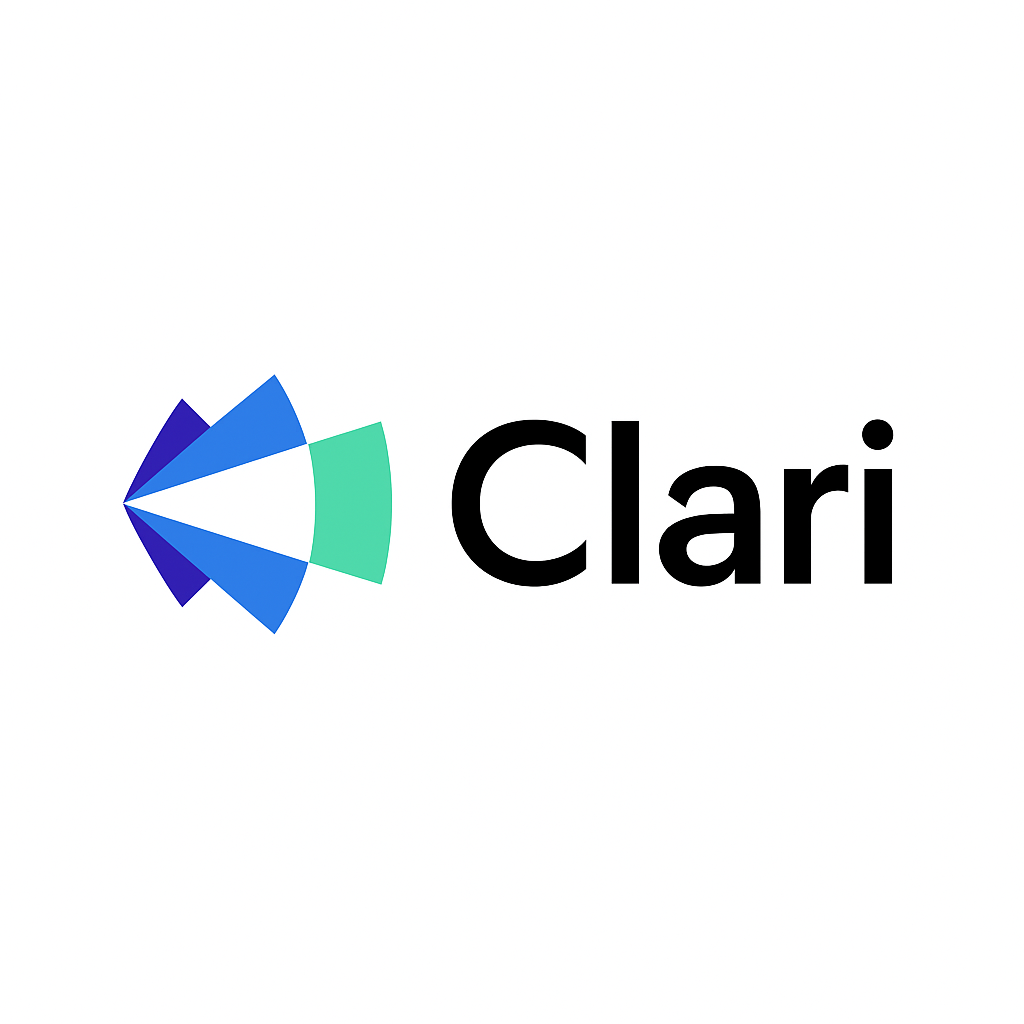
Salesloft Rhythm
Rhythm uses buyer behavior to guide reps toward the highest-value activities each day. It identifies what actions will have the greatest impact on pipeline progression and revenue outcomes, making it easier for sellers to prioritize tasks based on real-time signals and deal status.

Humantic AI
Humantic AI helps salespeople personalize their communication by analyzing the behavioral traits of prospects. The platform suggests tone, messaging style, and approach based on personality insights. This allows reps to create deeper connections and improve response rates, particularly in high-touch sales environments.

Substrata
Substrata focuses on negotiation and buyer psychology. It decodes emotional cues, intent, and interpersonal dynamics during conversations. This intelligence helps salespeople adjust their strategy mid-call, navigate power dynamics, and engage more effectively with complex stakeholders.
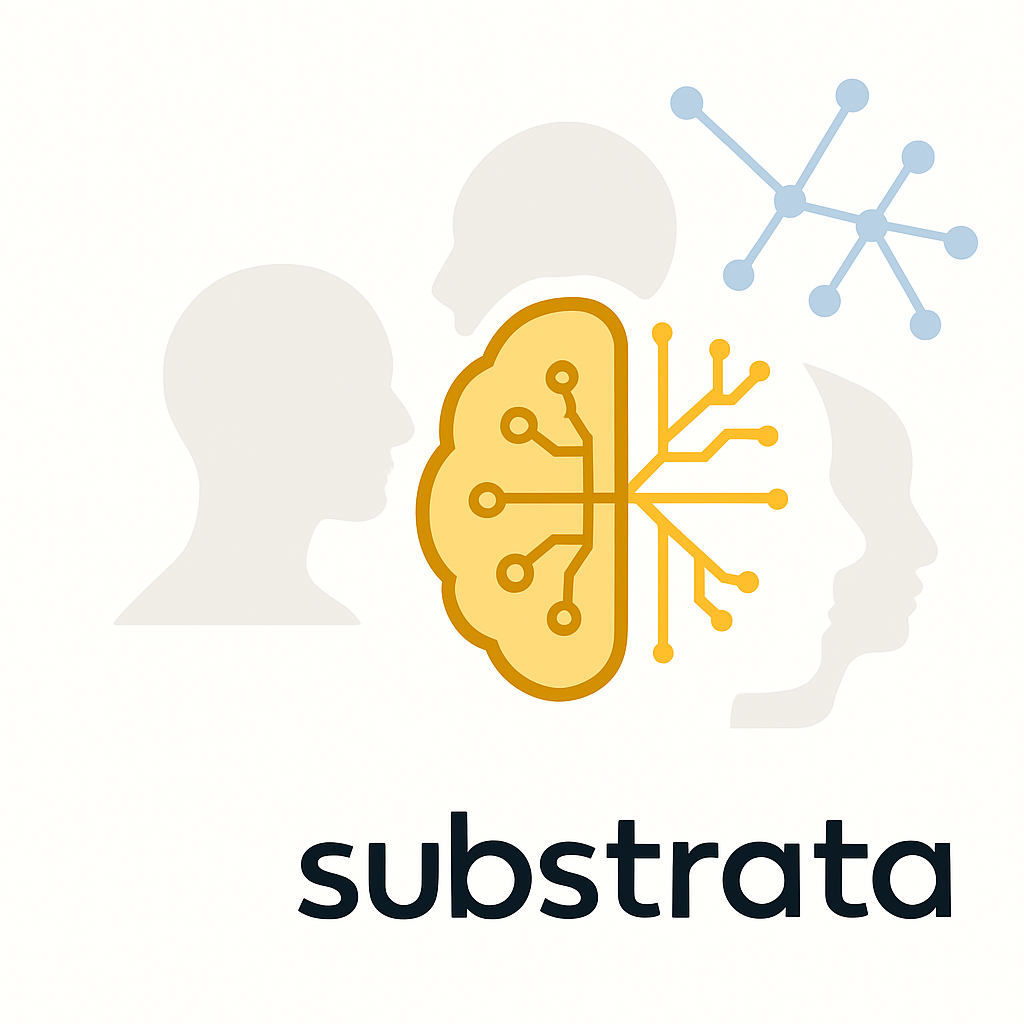
Regie.ai
Regie.ai is a full-suite content automation platform for outbound teams. It generates cold email sequences, sales scripts, and social content with contextual personalization. It also offers automated A/B testing and campaign analytics, allowing teams to refine their outreach in real time.
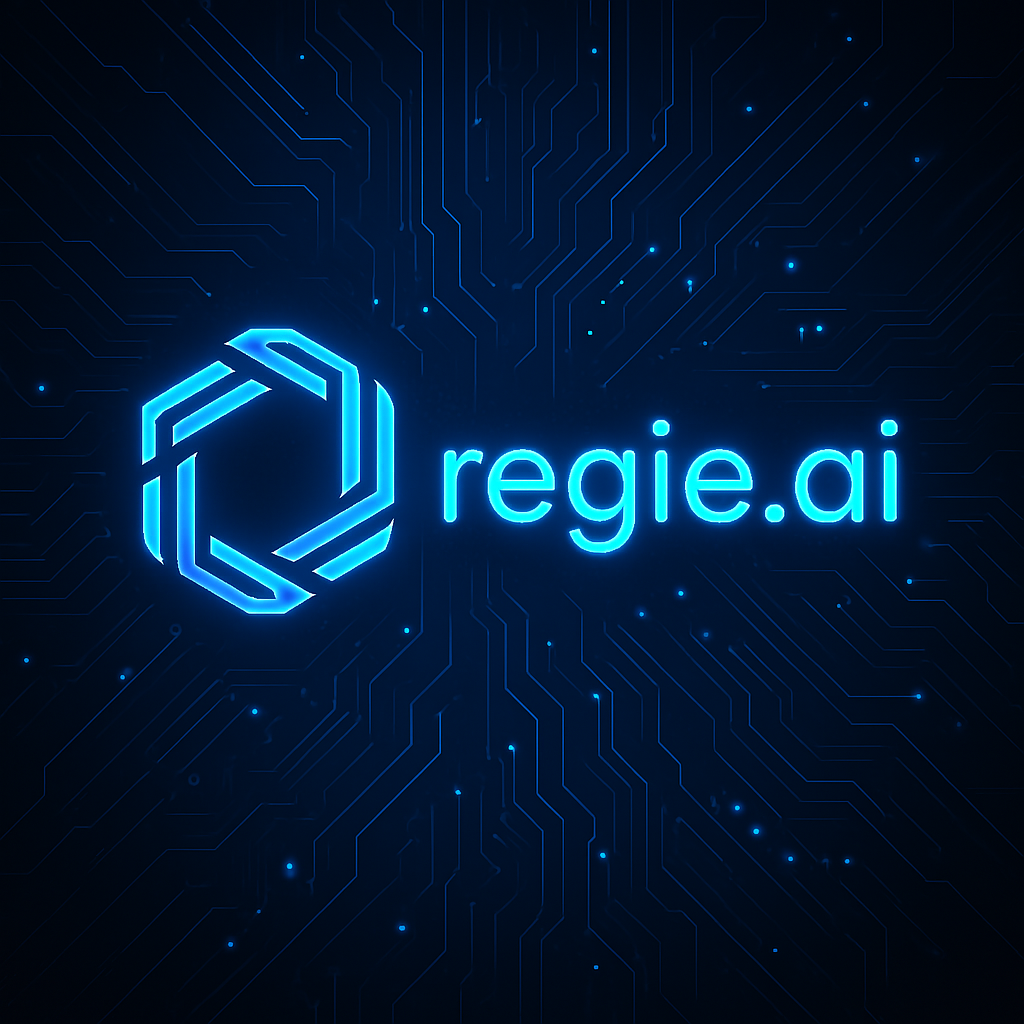
Clay
Clay combines AI with lead enrichment and list building. It scrapes platforms like LinkedIn to build highly targeted prospect databases, then enhances each record with data from integrated sources. Clay’s built-in AI assistant (Claygent) helps write emails, verify contacts, and perform outreach—all from a spreadsheet-style interface.

Avoma
Avoma is an AI meeting assistant that covers scheduling, note-taking, call analysis, and sales coaching. It scores rep performance, detects talk-time ratios, and offers insights into buyer intent. Integration with CRMs makes it easy to keep deal records updated automatically.
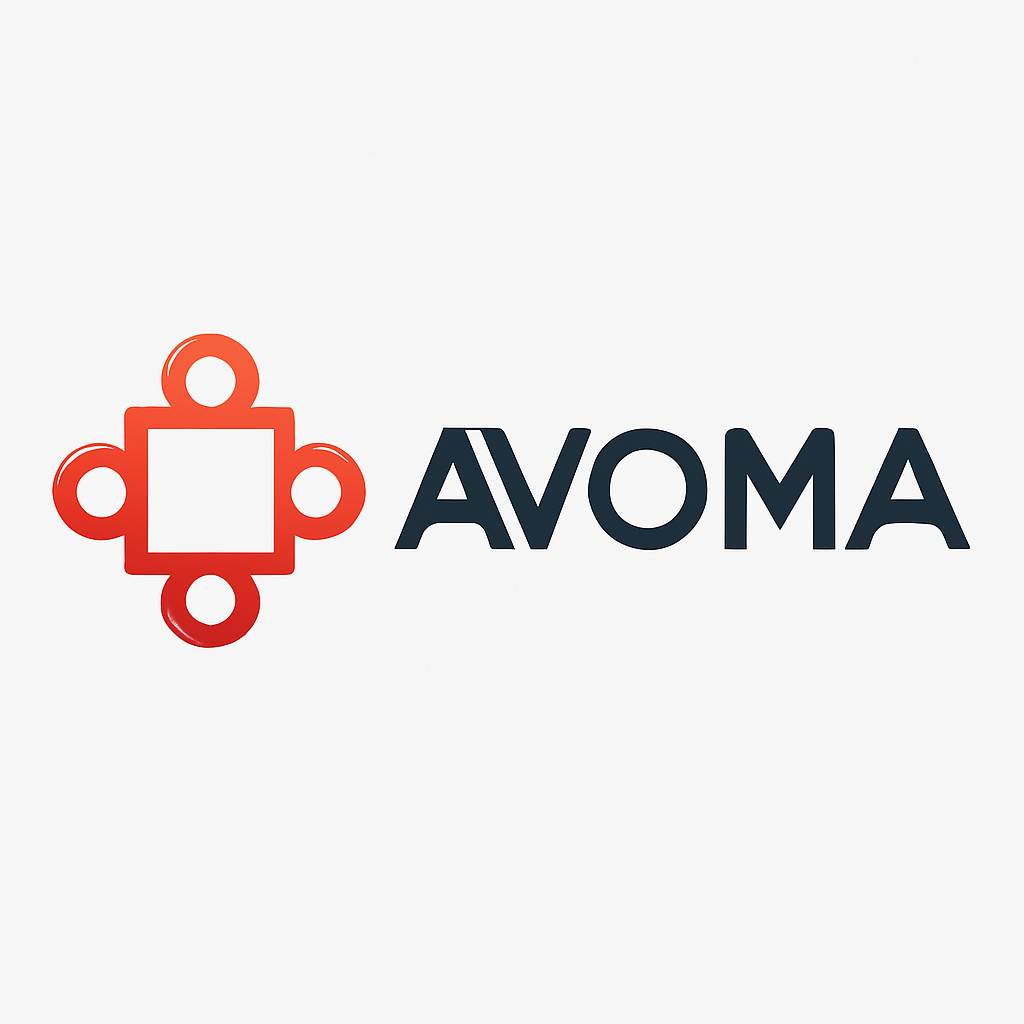
Suede
Suede assists reps during deal progression by analyzing their behavior, suggesting best practices, and aligning activity with high-performing sales patterns. It supports coaching and task prioritization, particularly in long sales cycles where many moving parts must be managed simultaneously.

Watsonx Assistant
IBM’s watsonx Assistant is a powerful AI platform for enterprises needing structured, multilingual virtual agents. It handles automated customer interaction across channels, helping sales teams with lead qualification, follow-up, and support inquiries—all with enterprise-grade data security and NLP capabilities.
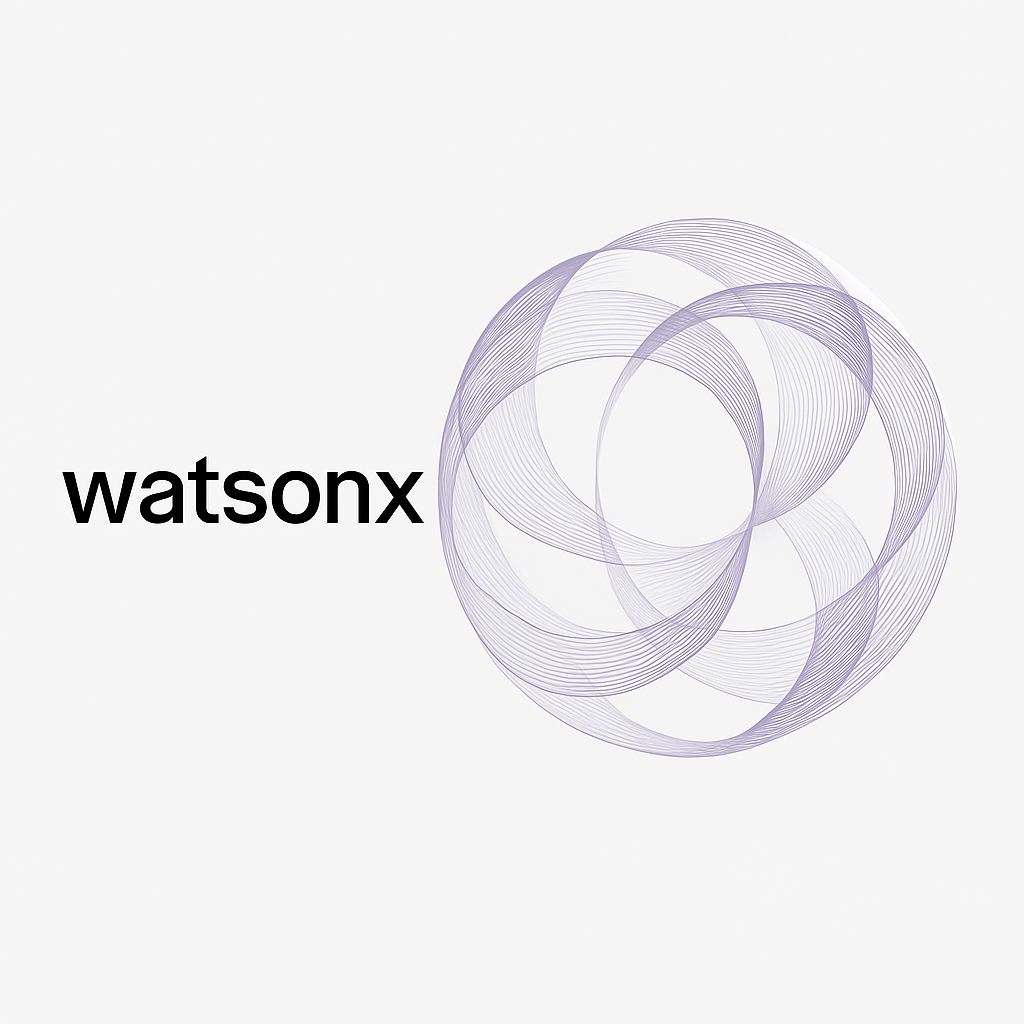
Postaga
Postaga is an AI outreach automation tool that guides users through campaign creation based on goals like link building, PR, or direct sales. It analyzes websites, identifies prospects, generates outreach copy, and builds multi-step email sequences—streamlining outbound workflows from start to finish.

Lavender
Lavender is a sales-focused AI writing assistant that scores and enhances cold emails. It provides coaching on structure, clarity, and personalization, while also tracking performance. It integrates directly into your email inbox, making it a real-time resource for improving engagement rates.
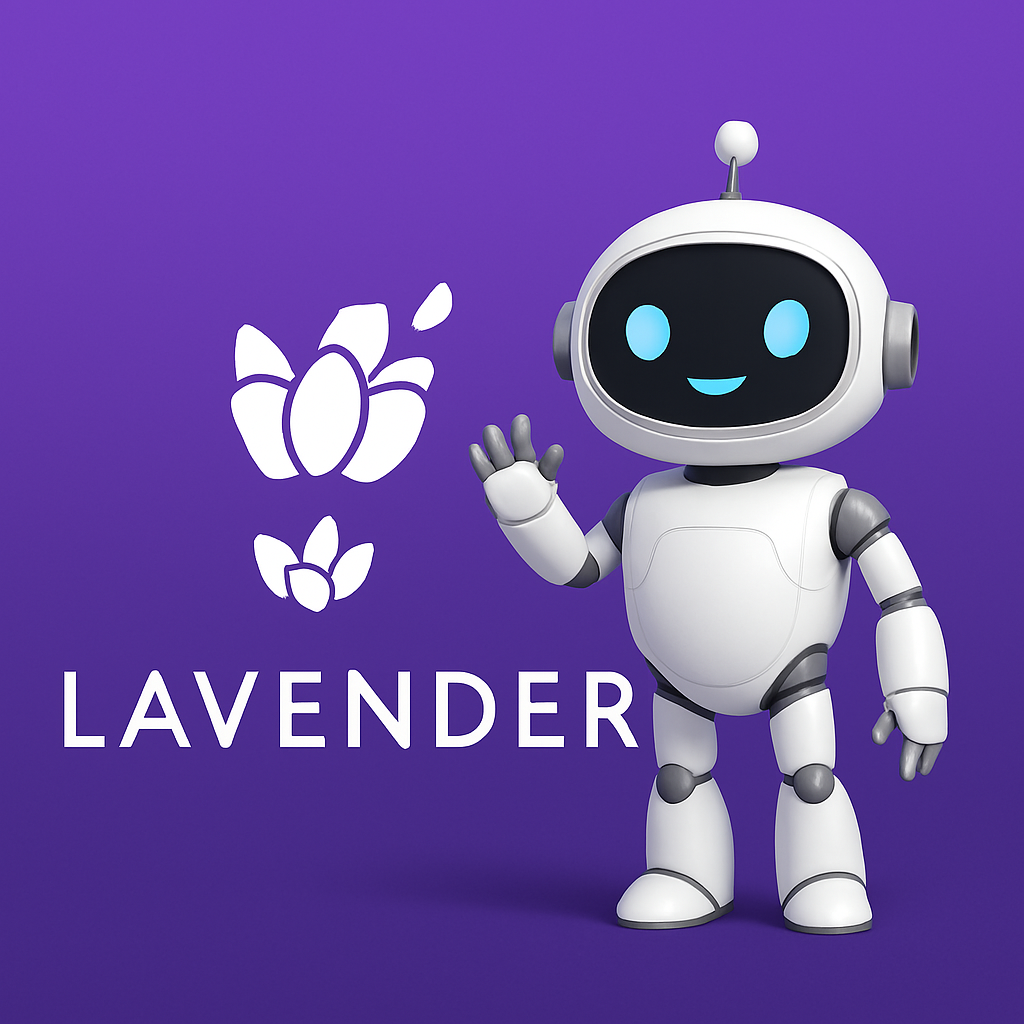
Assessing ROI and Cost Efficiencies of AI Sales Assistants
Figuring out if sales assistant software pays for itself takes some time. You need to track time saved, deals closed, and whether your team focuses on revenue-generating work instead of paperwork.
The time savings add up fast. Sales reps spend about 30% of their day updating systems and writing follow-ups. When software handles this automatically, a team of ten people gets roughly 60 extra hours weekly for actual selling.
Better lead qualification matters too. Instead of chasing every inquiry equally, smart software identifies prospects most likely to buy. Companies typically see 40% more qualified leads and faster deal cycles when they use predictive analytics properly.
The hidden benefit is team coordination. Everyone accesses the same customer insights and deal information. Marketing learns which messages work. Managers coach better because they see real conversation data. Nothing gets lost between departments.
Calculating exact ROI gets tricky because benefits compound over time. Month one shows modest gains while month twelve demonstrates major improvements as the system learns your processes. Start with clear goals, track specific metrics, and measure consistently for realistic expectations.
Security and Compliance Considerations
Sales software knows everything about your customers and business. Credit card numbers, personal details, confidential strategies, private conversations – it’s all sitting in these systems. One hack can expose everything and ruin your reputation overnight.
You need software with serious encryption that protects information whether it’s stored on servers or moving between different systems. Role-based access means junior reps can’t see sensitive financial data they don’t need. Audit trails show exactly who looked at what and when, which becomes crucial if something goes wrong.
Compliance rules change depending on where you do business and what industry you’re in. European customers trigger GDPR requirements. California residents fall under CCPA rules. Healthcare companies deal with HIPAA regulations. Financial services have even more restrictions. Your software vendor needs to understand these laws and build compliance into their platform from the start.
Don’t be shy about asking tough questions before you buy anything. Where exactly do they store your data? What happens if they get breached? How quickly will they tell you about security problems? Good companies have detailed plans for handling disasters and won’t hesitate to share them.
Some platforms include fraud detection and identity verification features that add extra protection. This matters when you’re handling hundreds or thousands of customer records daily.
Pick software that makes your team more productive while keeping your company out of legal trouble. Security isn’t something you can add later – it needs to be built in from day one.
Data Encryption
Data encryption transforms your customer information into scrambled code that looks like random gibberish to anyone without the right key. Think of it like putting your most sensitive business documents in a safe – even if someone breaks into your office, they can’t read what’s inside without the combination.
Sales software handles incredibly sensitive stuff. Customer credit card details, private conversations, financial records, competitive strategies – hackers would love to get their hands on this information. Encryption makes stolen data worthless because criminals can’t decode it into anything useful.
You want software that uses AES-256 encryption for stored data and TLS 1.2 or higher when information moves between systems. These aren’t just random technical terms – they represent military-grade protection that would take thousands of years to crack with current technology.
Access controls work alongside encryption to limit who can see what information. Your junior sales reps don’t need access to executive compensation data or strategic partnership details. Role-based permissions ensure people only see information relevant to their job, reducing the risk of internal leaks or accidental exposure.
Encryption builds customer trust because people know their private information stays private. It also keeps you compliant with data protection laws that carry serious penalties for companies that don’t protect customer data properly.
Don’t treat encryption as an optional feature you can add later. It needs to be built into the software from the ground up. Retrofitting security never works as well as designing it from the beginning.
Good vendors will gladly explain their encryption methods and security practices. Companies that get evasive about security details usually have something to hide. Your customers’ privacy and your business reputation depend on getting this right.
Compliance
Compliance isn’t something you can ignore or handle later when selecting sales software. Privacy laws like GDPR, CCPA, and HIPAA carry massive financial penalties that can seriously damage your business. We’re talking about fines that reach into millions of dollars for companies that mess this up.
Different regions have different rules about customer data. What’s perfectly legal in one country might get you in serious trouble somewhere else. European privacy laws are particularly strict – they require explicit consent for data collection and give customers the right to demand their information be deleted completely.
Your software needs to actively track regulatory changes instead of just meeting today’s requirements. Laws evolve constantly, and what’s compliant this year might not be next year. Look for vendors who provide regular updates and modifications to keep your systems current without requiring major overhauls.
Built-in compliance features make your life much easier. Consent tracking shows exactly when customers agreed to data usage. Data minimization ensures you’re only collecting information you actually need. Audit logs provide detailed records if regulators come asking questions during investigations.
Healthcare companies face additional HIPAA requirements for protecting patient information. Financial services deal with even more regulations around customer data. Your software vendor needs to understand these industry-specific rules and build appropriate protections into their platform.
Compliant platforms don’t just protect you from legal trouble – they also build customer trust. People feel more comfortable sharing information when they know companies handle their data responsibly and transparently.
Choose vendors who treat compliance as a core feature, not an afterthought. Your business’s future depends on getting this right from the beginning rather than scrambling to fix problems after they occur.

How to Make an AI Sales Assistant Work for Your Business: A Practical Step-by-Step Guide
Step 1: Define Where You Need Help
Start with writing down what’s broken in your sales process right now. Maybe follow-ups get forgotten. Lead qualification takes forever. People waste hours on busy work. Focus on real problems that cost you money. Don’t buy software to fix imaginary issues.
Step 2: Choose the Right Tool for the Job
Some tools handle emails well but can’t manage pipelines. Others do great CRM work but write terrible messages. Make a list of your biggest headaches first. Then find software that fixes those specific problems. Popular doesn’t mean right for you.
Step 3: Plan the Setup
Think about who’s going to manage this project. And decide which systems need to connect. Then check if your CRM can handle new software without breaking. Check compatibility before you buy anything. Most implementation disasters happen because people skip planning.
Step 4: Fine-Tune the Assistant
Make the software work like your team works. Build workflows that match your actual process. Create templates that sound like your company. Set up scoring based on what matters to your business. Feed it real data from your sales history.
Step 5: Teach Your Team
Schedule training when people aren’t stressed about monthly numbers. Make simple guides that show real benefits. Demonstrate time savings and deal improvements. Let people ask questions without feeling stupid. Address concerns honestly.
Step 6: Roll It Out and Watch Closely
Go live but stay involved. People will use features differently than expected. Some tools will be popular. Others get ignored completely. Track what works and what doesn’t. Ask for honest feedback regularly. Actually listen to complaints.
Step 7: Improve and Expand
Use early results to make adjustments. Add new features slowly once people get comfortable. Don’t activate everything at once. Smart expansion beats feature overload. Build on what’s working instead of forcing unused capabilities.
Step 8: Keep It Secure and Compliant
Your software knows everything about customers. One breach destroys years of relationship building. Review data storage and access controls. Follow privacy laws that apply to your business. Schedule regular security checkups. Threats change constantly.
Most teams need several months to adapt fully. Real improvements take time to appear. Don’t panic if results aren’t immediate. Success requires patience and realistic expectations about the timeline.
The Future of AI Sales Assistants
The next generation of AI sales assistants is set to redefine how sales teams operate—moving from support tools to strategic partners in the sales process. As artificial intelligence becomes more advanced, these assistants will be capable of independently handling more stages of the buyer journey, such as lead scoring, qualification, follow-up automation, and even full-cycle management of lower-tier deals.
We can expect more accurate predictive insights, fueled by real-time data analysis and contextual learning. Future assistants will not just suggest next steps—they’ll anticipate buyer intent with increasing precision. Integrations with voice assistants, IoT devices, and even immersive technologies like AR/VR could further enhance virtual selling experiences.
At the same time, ethical use, transparency, and data privacy will be front and center. Regulatory frameworks will push developers to build AI systems that are not only intelligent but also trustworthy and secure.
Despite all this progress, the human element in sales remains irreplaceable. AI will support—but not replace—salespeople, freeing them to focus on high-value activities like relationship-building, negotiation, and personalized service. The future lies in balance: data-driven efficiency from machines, and empathy-driven connection from people. Together, they’ll form the backbone of modern, high-performance sales organizations.
Conclusion
Sales assistant technology isn’t science fiction anymore. It’s working right now in companies everywhere, handling boring tasks and giving teams useful information. These tools actually improve productivity and help close more deals when implemented properly.
The important thing is using technology to support your sales team, not replace them. People still want to buy from people. Relationships matter. Complex negotiations need human judgment. Smart companies use AI for data entry and routine follow-ups while humans focus on building trust and solving problems.
Picking the right software can feel overwhelming with so many options available. Implementation gets tricky when you’re trying to connect different systems and train your team. That’s normal – most companies struggle with these decisions.
We help sales teams figure out what they actually need instead of what vendors are pushing. Our process starts with understanding your specific problems, then finding software that solves those issues without creating new headaches. We handle the technical setup and team training so you can focus on selling.
Whether you’re just curious about AI possibilities or ready to overhaul your entire sales process, we can guide you through the options. No pressure, no generic solutions. Just practical advice based on what actually works for teams like yours.
Ready to see how smart technology can make your sales process more efficient? Let’s talk about building something that fits your business instead of forcing you to adapt to software limitations.




